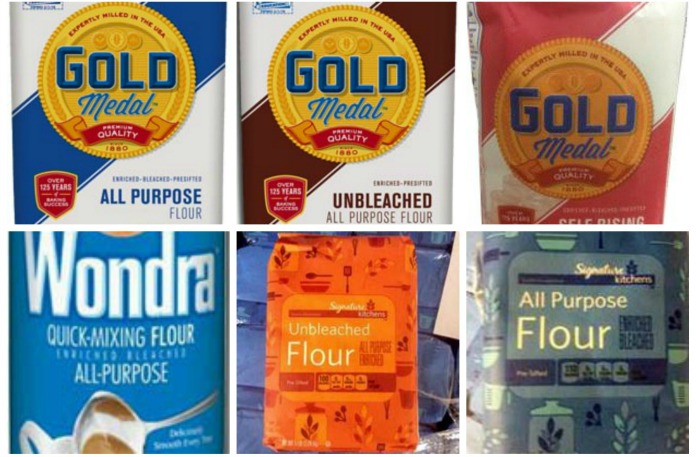
UPDATED JUNE 1: An E. coli outbreak linked to General Mills flours has sickened 38 people in 20 states. The outbreak strain E. coli O121 has been linked to illnesses occurring between December 21, 2015, and May 3, 2016. Ten people have been hospitalized.
The company has issued a recall for 10 million pounds of flour sold under three brand names: Gold Medal, Wondra and Signature. Consumers who purchase these brands of flour should check recall information carefully as E. coli can cause serious illness and death.
The case count by state is as follows: Alabama (1), Arkansas (1), Arizona (2), California (1), Colorado (4), Iowa (1), Illinois (4), Massachusetts (2), Maryland (1), Michigan (4), Minnesota (3), Missouri (1), Montana (1), New York (1), Oklahoma (2), Pennsylvania (2), Texas (2), Virginia (2), Washington (2) and Wisconsin (1).
When asked about food histories, 16 of the 21 case patients interviewed by health investigators reported that they or someone in their household used flour in the week before they became ill. Nine reported eating or tasting raw homemade dough or batter, 12 named Gold Medal brand flour, and three reported eating or playing with raw dough at restaurants. Seventy eight percent of the case patients, who range in age from 1 year to 95, are female.
Using package information collected from the homes of those sickened and records from restaurants where ill people were exposed to raw dough, a traceback investigation indicates that flour produced at General Mills’ Kansas City, Missouri facility is a likely source of this outbreak. The flour indicated was produced during one week in November 2015.
E. coli symptoms usually develop within two to five days of exposure but can appear within 24 hours or take as long as 10 days to develop. They include severe and painful abdominal and stomach cramps and diarrhea, that is sometimes bloody. Sometimes these symptoms, which last about a week, are accompanied by a low-grade fever. Anyone who ate the recalled flour and developed these symptoms should see a doctor as soon as possible.
Young children, seniors and those with compromised immunes systems are at greatest risk of infection and for associated complications such as hemolytic uremic syndrome (HUS), which causes kidney failure, seizures, and death. At this time, none of the case patients in this outbreak has developed HUS.




